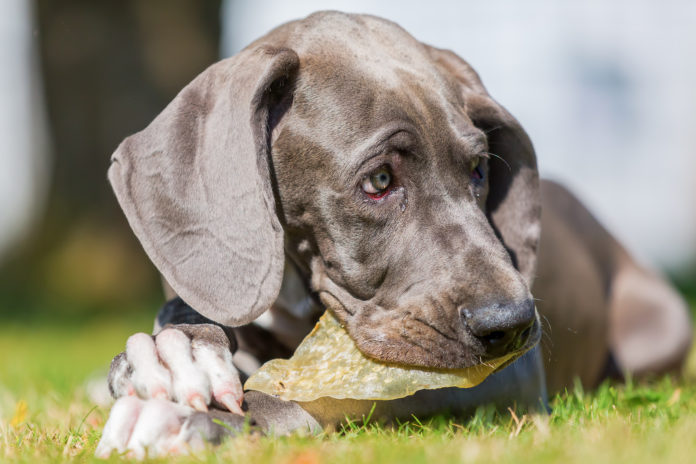
No one wants to deal with a product recall, especially since it can result in tremendous loss of profits and reputation. And a few major pet food recalls within the past year have shown just how extensive the consequences of one missed mistake can be.
Following the widespread recall on pig ears and Hill’s multi-product recall due to toxic levels of vitamin D, here are some actions pet food manufacturers can take to strengthen their safety strategies.
The importance of compliance
Pet food companies must be committed to food safety not only to protect pets and their owners, but to comply with current law.
Thanks to the Food Safety Modernization Act (FSMA), the federal requirements for pet food manufacturers are nearly identical to those for human food. At the forefront of these requirements is a written plan for preventative controls.
The written plan must include a hazards analysis, as well as the specific controls, monitoring, and record-keeping involved in preventing hazards. Facilities are also required to document a recall plan and clarify what actions they will take to correct food safety issues.
To ensure their facilities and protocols are fully FSMA-compliant, pet food companies may wish to conduct a third-party safety audit. The audit process can identify problem areas and hidden hazards as well as actions the company can take to correct them. Auditors may also suggest steps manufacturers can take to go above and beyond the federal requirements. This way, they’ll be better prepared for the possibility of an FDA inspection or product recall.
The role of employees
Sometimes, in order to be effective, a food safety plan must come with some facility modifications. This may include updates like improving traffic flow, better segregating hygienic areas, adopting new technology, and switching to equipment that meets sanitary design standards.
But behind every successful facility and its equipment are workers who demonstrate their commitment to food safety day after day. That’s why it’s important to establish a company culture where all employees understand and embrace their role in preventing safety issues, whether they’re in charge of sanitation, working on the line, or are simply passing through a production area.
Some food safety risks aren’t as obvious as others, however. Cell phones, for example, are often overlooked sources of contamination, and employees carry them everywhere. It may be a good idea to implement rules about when and where mobile devices are permitted and how to sanitize them when necessary.
It may also be helpful to conduct periodic mock recalls to better prepare employees for the real thing. Without practice, workers may panic and make mistakes during a recall, which will only complicate an already critical situation. But if they have confidence in their ability to handle such a crisis, they’ll be more likely to react swiftly, smoothly, and skillfully.
Solutions for pathogen prevention
The pig ear recall proved that pet food safety practices are necessary to protect not only the animals, but their owners, too. Salmonella in the recalled treats was to blame for 154 human illnesses.
Raw pet food ingredients often contain bacteria that may be harmless to pets but risky for their owners to handle. This presents some challenges for food safety, particularly when it comes to raw and minimally-processed pet diets. While methods like high-pressure processing can reduce contamination, some pathogens are resistant to such treatments. That’s why diligent testing and inspections are crucial.
Testing methods and technologies like whole genome sequencing, near infrared (NIR) instruments, and metal detectors and magnets can help manufacturers rapidly detect issues with product contamination and quality. Manufacturers who implement technologies like these on-site or along the production line will be able to correct issues before contaminated products progress further.
A closer look at sources and suppliers
The responsibility of maintaining food safety extends across the supply chain — to farmers, suppliers, transporters, and food manufacturers alike.
However, recent recall investigations have put a spotlight on ingredient sources and suppliers, enough that ingredient quality was named the top-ranking concern among pet food industry professionals. Hill’s pointed to an ingredient supplier as the origin of their recall, while the pig ears incident was eventually traced back to multiple sources in South America.
To prevent food safety issues that arise from imported ingredients, FSMA introduced the Foreign Supplier Verification Program (FSVP). FSVP requires importers to verify that their foreign suppliers have sufficient preventative controls in place.
In addition to thoroughly vetting their suppliers, pet food companies may consider adopting a traceability system to aid supply chain monitoring and management. This will ensure that when a food safety issue arises, there are detailed, digital footprints to follow.
The right response to a recall
Unfortunately, no facility can be completely immune to recalls. But, should the occasion arise, a quick and appropriate response will minimize the resulting loss and damage.
Hill’s situation led to multiple lawsuits, including accusations that the company failed to issue recalls for all affected products in a timely manner. Delaying a recall can have disastrous effects, not just to the health of pets and their owners, but to consumer trust and loyalty.
In the midst of a recall, brands can prove their ongoing dedication to food safety by cooperating with FDA investigations and keeping consumers informed along the way. While customers may be displeased that their pet’s favorite food or treat has been recalled, they’ll appreciate a prompt warning and information on what the company is doing to address the issue. They’ll also want to know what steps the company will take to prevent it from happening again.
With all the above systems and strategies in place, pet food manufacturers have a much better chance of catching a small problem before it becomes a bigger problem.






![[Webinar] Unveiling the Top Trends Shaping the Food & Beverage Industry in 2025: Insights from an Industry Expert](https://foodindustryexecutive.com/wp-content/uploads/2024/09/Aptean-Unveiling-the-Top-Trends-Shaping-the-Food-Beverage-Industry-in-2025-Insights-from-an-Industry-Expert-1-218x150.png)
